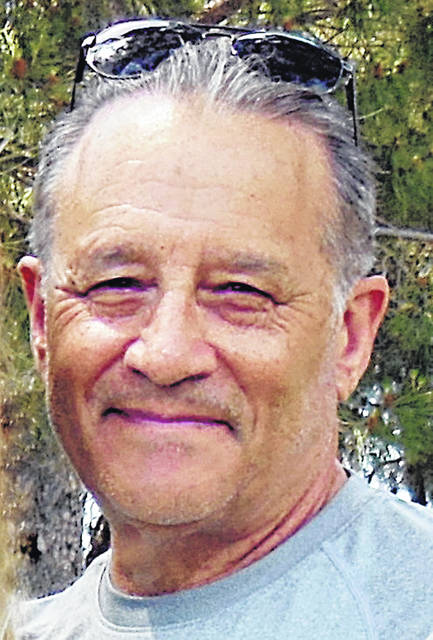In 1976, I made my first trip into China. Mao Zedong had just died and because of the status of the trip, we were allowed to see his body in the mausoleum that was still under construction. China was a bleak place. It was like stepping back centuries in time.
There were a few trucks and official cars on the roads, but thousands of bicycles. I stayed at the Beijing Hotel, one of the only places foreigners could stay in the city and just across the street from Tiananmen Square, Mao’s mausoleum, the Great Hall of the People and the Forbidden City. The hotel looked impressive from the outside, but when I turned the water on in the sink and the bathtub, the only thing that came out was a brown fluid that would have made a mud puddle proud.
In the city, if you were lucky, you owned a bicycle and lived as your ancestors did in stone courtyards called “Siheyuan.” Not so today. I’ve been back to China over the years several times and today big cities like Beijing, Shanghai and Guangzhou are among the most modern cities in the world with state-of-the-art airports and bullet trains serving them with impressive efficiency.
The world has evolved dramatically in my lifetime and the everlasting truth is (as I suggested in an earlier column), the only constant is change. Our Cold War nemesis, the Soviet Union, first fragmented then disintegrated and finally reinvented itself as the Russia Federation. It’s a determined political competitor led by another authoritarian Russian czar, Vladimir Putin. Europe coalesced in 1993 as an economic and political federation, known today as the European Union. It has emerged as another political and economic powerhouse with significant self-interests.
Alliances shift and competition for resources grow in a smaller world. Trade policies become increasingly important in an interconnected world. Terrorism is on the upswing, internet disinformation and malevolence are rampant, global pandemics are rife with dangerous health and economic consequences and then there’s nature’s Sword of Damocles, the existential threat of climate change to planet Earth.
So, the question rises before us — how do we calibrate for our role in this interconnected and increasingly smaller world? First and foremost, we must continue to be the world’s citadel of democracy. Countless nations rely on us for this. Same goes for our leadership on human rights although some might argue we need to freshen up our appearances in these regards. A corollary to this — we must lead by the power of our example.
What has changed since the end of the Cold War is that we now have rivalling economic powers with substantial influence in the world. This multipolar dynamic inevitably manifests itself in critical issues like trade policy, national security, immigration policy, climate policy, international finance, and global corporate enterprises.
So how do we calibrate for all this as we emerge from a global pandemic?
Indifference is not an option, nor is isolation. Supporting a multilateral coalition of democracies as a foil against authoritarian governments is a worthy strategy and it means working closely with our allies. But such strategies can be problematic if not carefully managed. China is a case in point. Zero-sum competitions with China can be counter-productive. Meeting the challenge of competing with China straight up means realpolitik toughness yet at the same time finding ways to partner on leadership with existential issues like climate change and pandemics.
As capitalist devotees, we understand that competition is good. There’s plenty of room for competition in technology, space and ideology without having to resort to conflict; yet a nation avoids warfare by being prepared for it. Peace comes through the exercise of strength. Case in point, peaceful intent doesn’t mean not holding Russia responsible for its seemingly endless transgressions.
The secret to our place and role in such an interconnected world is balance, balancing values, national security issues, economic interests, alliances and the prosperity of our own nation. We must find the right balance when it comes to military interventions versus the situational exercise of soft power. As an economic power in competition with other rising powers we need to find the right balance between bi-lateral and multilateral trade deals that are win-wins and punitive trade sanctions only as a means to end up with fair trade. There’s a right balance between a foreign policy that emphasizes nation building, if it serves our democratic interests, and unwanted, unrequited international social work.
There’s much to do. We are reaching a critical decade in managing the reversal of climate change. China is on our heals economically and militarily. Cases in point. Rare-earth metals are essential to high technology. In 1993, China produced 38 percent of the 17 rare-earth heavy metals used in cell phones, computer chips, flat screens, batteries, guidance systems, radar and lasers. The U.S. produced 33 percent. Today, China controls 98 percent of all rare-earth metals. China has also surpassed the U.S. in the total number of naval ships at sea, albeit not in tonnage.
As we calibrate for our place and role in this brave new world, we have to be strategic. We have to be determined competitors. We have to work with our allies. We have to balance our key values and interests with the legitimate and lawful interests of competing powers. We have to be unwavering and tough with those who resort to terrorism and subterfuge. But most importantly, we need to lead powerfully by example. Today’s world needs that from us.
China initially failed with Mao Zedong’s “Great Leap Forward,” only to succeed after his death. Now it’s our time to show the world what we can do with our own great leap forward.
Bill Sims is a Hillsboro resident, retired president of the Denver Council on Foreign Relations, an author and runs a small farm in Berrysville with his wife. He is a former educator, executive and foundation president.






